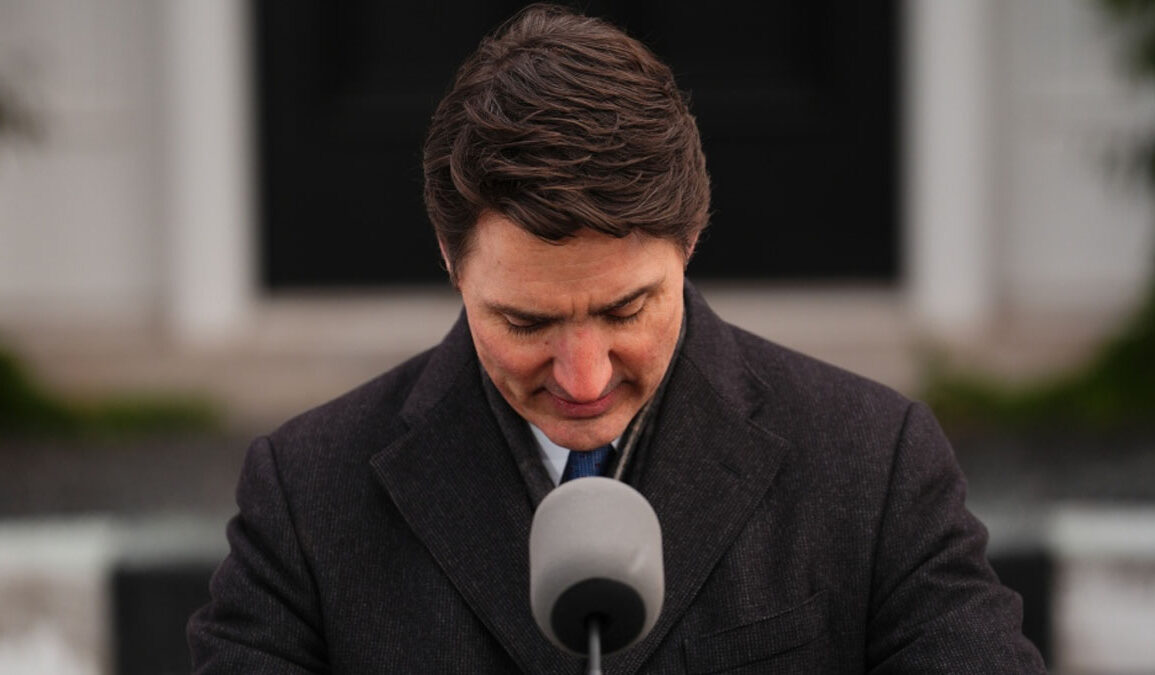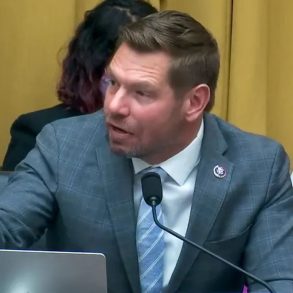“Trump won. Trudeau resigned. Keir Starmer got exposed. Nayib Bukele cut crime by 95% in El Salvador. Javier Milei created the first surplus since 2008 in Argentina. Masculinity is back. Great men are ascendant.” – Musk
After nearly a decade as Canada’s Prime Minister, Justin Trudeau has announced his resignation as leader of the Liberal Party. In an emotional press conference in Ottawa, Trudeau stated, “This country deserves a real choice in the next election.” However, his departure raises pressing questions about the true reasons behind his resignation, reactions from global figures like Donald Trump and Elon Musk, and what lies ahead for Canada as it navigates an uncertain political future.
Why Did Trudeau Say He Is Resigning?
Justin Trudeau framed his resignation as an act of responsibility, emphasizing that internal divisions within the Liberal Party had made it impossible for him to effectively lead into the next election. In his own words, he stated, “It has become clear to me that if I’m having to fight internal battles, I cannot be the best option in that election.” He further stressed that Canadians deserve a “real choice” in the upcoming election and acknowledged that his leadership may have become a liability for his party.
Trudeau also alluded to the fatigue that Canadians feel after nearly a decade of his leadership. Liberal MP Kody Blois reflected this sentiment, explaining, “He was in the media and the public eye a lot and a lot of my constituents…largely I think it just became a bit of fatigue with the Prime Minister himself.” Trudeau’s acknowledgment of this reality reveals an awareness of his declining popularity and the growing frustration within his party and among voters.
Despite his accomplishments, Trudeau admitted to one significant regret during his press conference: his failure to deliver on electoral reform. He remarked, “I do wish we’d been able to change the way we elect our governments in this country so that people could simply choose a second choice, or a third choice on the same ballot.” This unfulfilled promise remains a blemish on his otherwise ambitious platform.
The Real Reasons Behind Trudeau’s Exit
While Trudeau cited internal party struggles and fatigue as reasons for stepping down, the undercurrents of his departure point to deeper and more complex issues. Over the past few years, Canada has faced mounting criticism over rising living costs, skyrocketing housing prices, and a struggling healthcare system. Trudeau’s government appeared unable to address these challenges effectively, leading to widespread dissatisfaction.
Trudeau’s handling of the Freedom Convoy, a truckers’ protest of COVID mandates, where the truckers were cut off from their bank accounts and treated like criminals caused many Americans to sour on him, including Trump. While we generally had ignored his socialist tendencies, this event caused an avalanche of criticisms, previous considered not our business. Naturally this raised the consciousness of Canadian’s as well.
The resignation of Deputy Prime Minister Chrystia Freeland in December was seen as a turning point. In her resignation letter, Freeland criticized Trudeau’s “political gimmicks” and expressed her concerns about his handling of the U.S.-Canada relationship, particularly in response to Donald Trump’s looming tariff threats. Freeland’s departure was a devastating blow, signaling a lack of confidence in Trudeau’s leadership even among his closest allies.
Polls leading up to Trudeau’s resignation painted a bleak picture for the Liberal Party. Public support for the party had plummeted to an all-time low, with many predicting a significant defeat in the next election. Trudeau’s decision to step down appears to be a strategic move to allow the party time to regroup and select a leader who may stand a better chance against the rising popularity of Conservative leader Pierre Poilievre.
Donald Trump’s Reaction
As expected, U.S. President-elect Donald Trump wasted no time responding to Trudeau’s resignation. Taking to his social media platform, Truth Social, Trump wrote, “Many people in Canada LOVE being the 51st State. If Canada merged with the U.S., there would be no tariffs, taxes would go way down, and they would be TOTALLY SECURE from the threat of the Russian and Chinese Ships that are constantly surrounding them. Together, what a great Nation it would be!!!”
This comment echoes Trump’s previous statements suggesting a merger between Canada and the United States. While largely seen as rhetorical bluster, Trump’s remarks highlight the strained trade relationship between the two nations, exacerbated by Trump’s threats of imposing a 25% tariff on Canadian goods.
Trump’s repeated mockery of Trudeau—once calling him the “governor” of the “Great State of Canada”—reflects the contentious relationship the two leaders have shared over the years. With Trump’s return to power looming, Trudeau may have calculated that stepping aside now would give his party a chance to reset its approach to dealing with the unpredictable U.S. leader.
Trudeau had been attempting to play the tough leader with Trump, he was clumsy and annoying to Trump. Additionally Trump, knew that Trudeau’s numbers were failing and that he would be powerless as an ally. So Trump let him have it, made him look small and push him out more quickly.
Elon Musk Joins the Conversation
Tech billionaire Elon Musk also added his voice to the global reaction. Taking to X (formerly Twitter), Musk commented, “2025 is looking good,” in response to Trudeau’s resignation. Musk reshared a post celebrating major political shifts around the world, which included Trudeau’s departure. The post read, “Trump won. Trudeau resigned. Keir Starmer got exposed. Nayib Bukele cut crime by 95% in El Salvador. Javier Milei created the first surplus since 2008 in Argentina. Masculinity is back. Great men are ascendant.”
Musk’s commentary, though brief, aligns with his growing pattern of engaging in geopolitical discussions and reflects his broader worldview. His words were met with enthusiastic approval from his followers, many of whom celebrated Trudeau’s resignation as a symbolic victory for their cause.
What Happens Next for Canada?
Canada now faces a period of political uncertainty. Trudeau will remain in office until the Liberal Party selects a new leader, a process expected to conclude by March 24 when Parliament resumes. Liberal Party President Sachit Mehra has promised a “robust nationwide competitive process” to choose the next leader.
Potential successors include Chrystia Freeland, former central banker Mark Carney, and Foreign Minister Mélanie Joly. Each candidate brings their own vision for the party, and the leadership race is expected to set the tone for the Liberals’ election campaign.
Meanwhile, Pierre Poilievre and the Conservative Party are positioning themselves as the party of change. Poilievre has pledged to “cap spending, axe taxes, reward work, build homes, uphold family, stop crime, secure borders, rearm our forces, restore our freedom, and put Canada first.” His populist rhetoric has resonated with many Canadians, particularly those frustrated by rising living costs.
Trudeau’s departure marks not just the end of a political chapter but the beginning of a crucial choice for Canadians about the direction of their country. In Trudeau’s own words, “This country deserves a real choice.” With a bit of luck the conservatives will take over and the Trudeau era will be forgotten.








